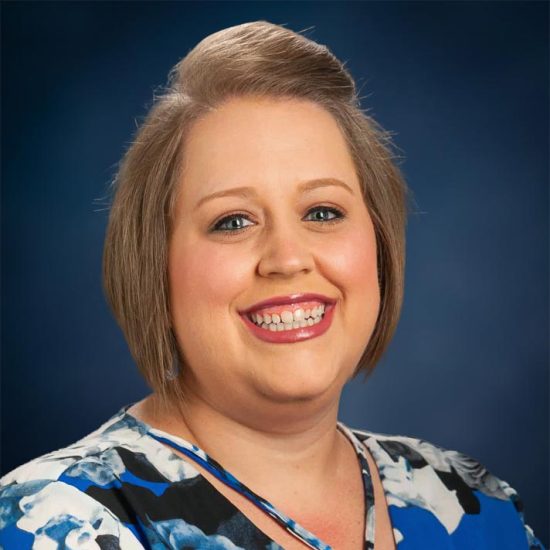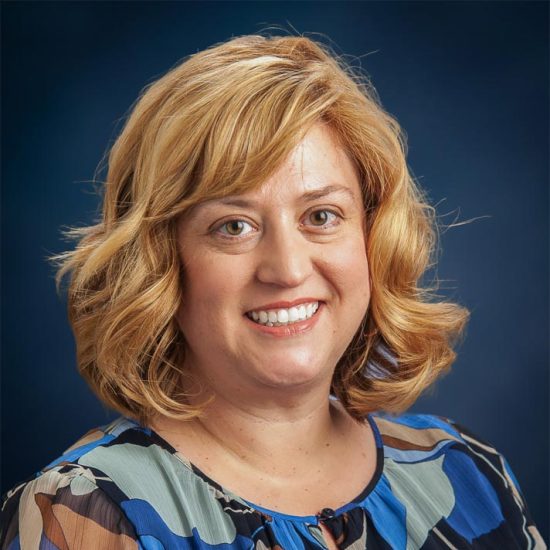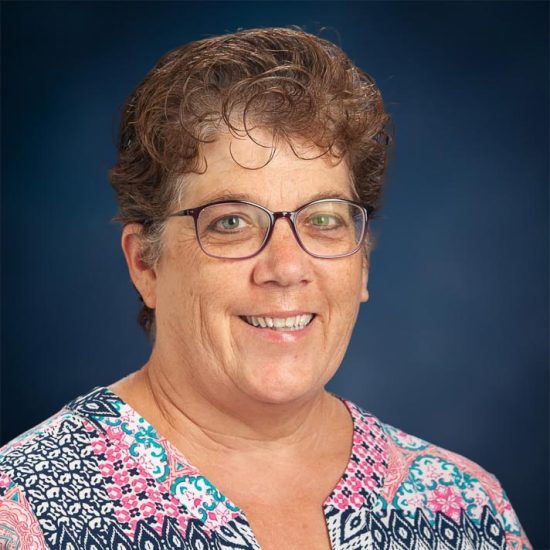
Counselor Education and Supervision (PHD)
Gain a deep understanding of the professional identity expected at the doctoral level in areas of counseling, supervision, teaching, scholarship, leadership and advocacy.
Help Others Thrive
Our mission is to prepare research-informed, ethically sound and multiculturally responsive counselor educators and supervisors who can effectively:
- Conduct research and engage in scholarship.
- Provide counseling supervision.
- Facilitate learning.
- Engage in leadership and advocacy, and
- Deliver counseling services.
Fulfilling this mission will ensure the delivery of a high-quality doctoral education that meets the Council for Accreditation of Counseling and Related Educational Programs (CACREP) standards. It all starts here. Begin your journey and apply today!
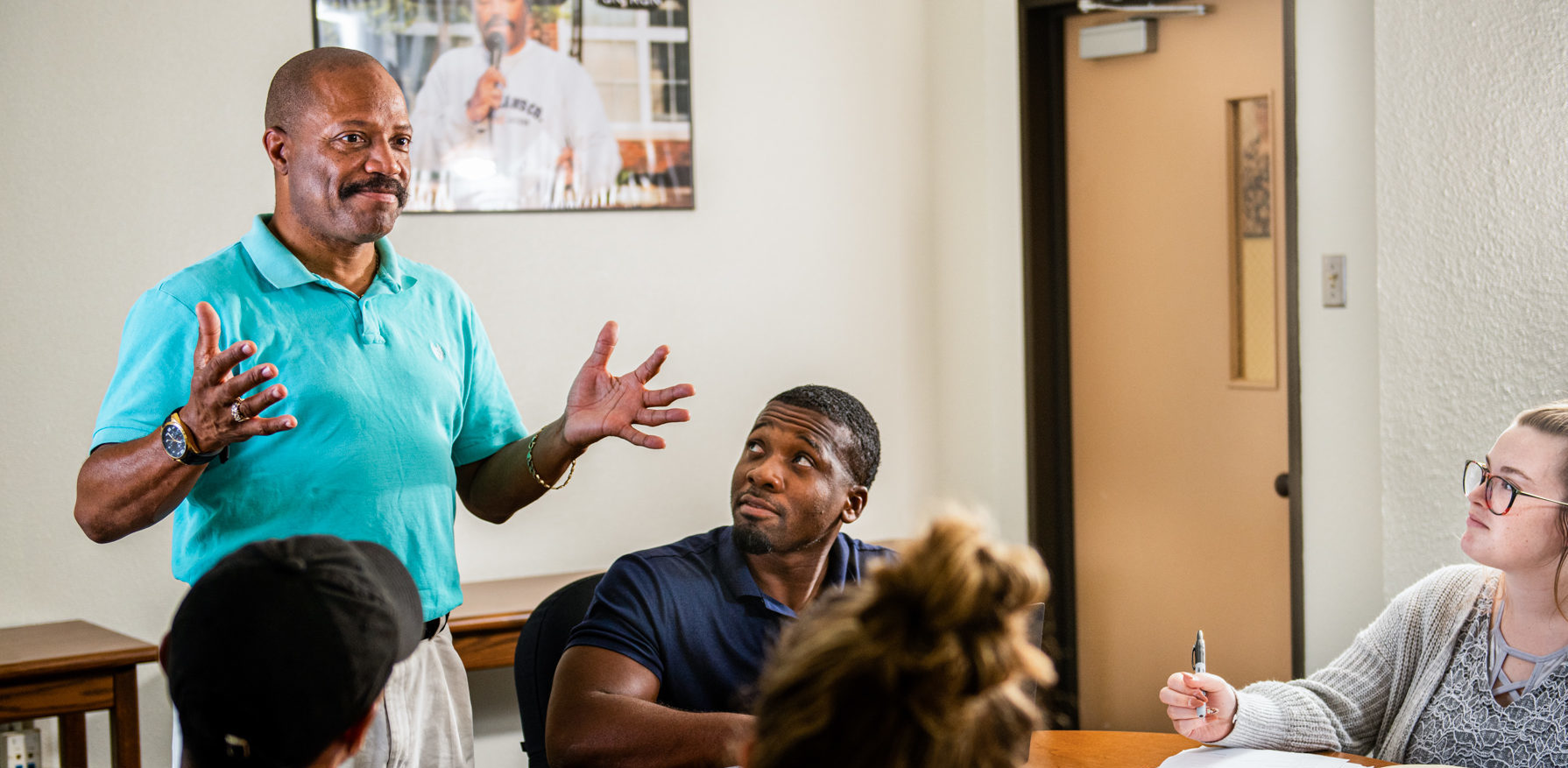
Careers
Our program prepares you to serve a critical role in the workforce. From clinical counseling to roles in academia, your chance to make an impact is out there.
Career Possibilities and Current Median Salaries
US DOL Bureau of Labor Statistics, Occupational Outlook Handbook, 2023
See Yourself Succeed With a Masters Degree in Counseling
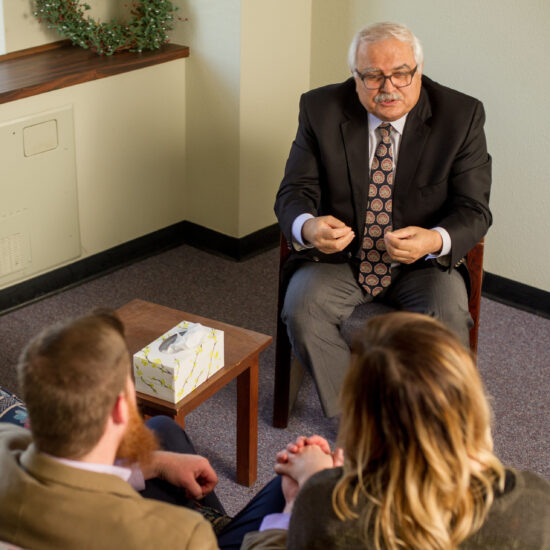
Hands-on Research
Whether it's a full year in the classroom, practicum or internships, you’ll engage in real-world learning experiences that build your confidence and skills.
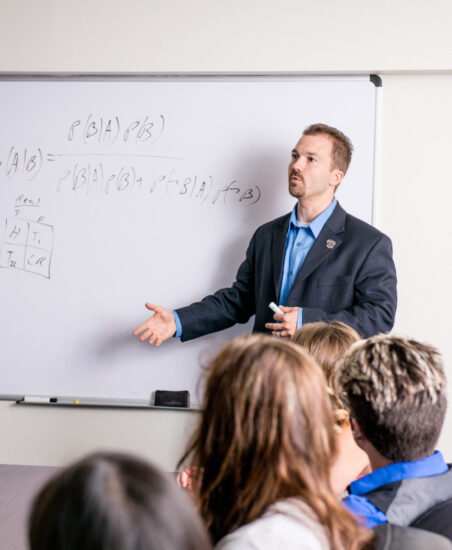
Accomplished Faculty
Enjoy the opportunity to learn from home or at one of our campuses with guidance and mentorship from world-class faculty.
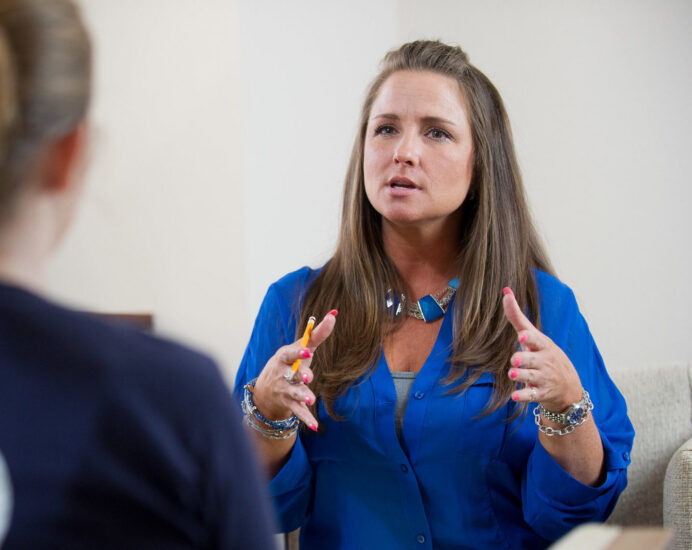
Education Success
Join the ranks of our graduates who have gone on to become school counselors, licensed professional counselors and members of university student services.
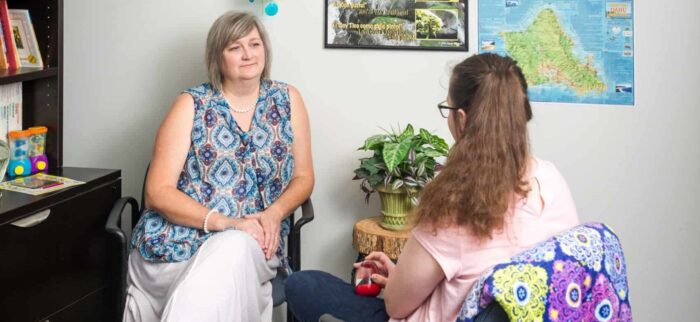
Career Readiness
Participate in excellence-driven programs that empower you with knowledge of mental health, student affairs and therapeutic strategies.


Guidance You Need
Located in the Frank Young Education North building, our Mentor Center provides the information and support needed to reach your career goals.
What You Will Learn
A doctorate in Counselor Education and Supervision offers the opportunity to:
- Learn advanced counseling theories and techniques.
- Develop your research and writing abilities.
- Apply your knowledge to the real world through hands-on experience
- Receive faculty guidance to prepare you for success.
- Gain insight into the professional identity expected at the doctoral level in areas of counseling, supervision, teaching, scholarship, leadership and advocacy.

Doctoral Program Checklist
Earning your doctorate might seem complicated and worrisome. Learn more about the steps you’ll take with this helpful checklist.
- Read the doctoral handbook
- Meet with your assigned advisor
- Begin residency requirements (review in the doctoral handbook)
- Complete all doctoral coursework
- Complete COMPS portfolio
- Obtain doctoral candidate status
- Begin the dissertation process
- File for graduation
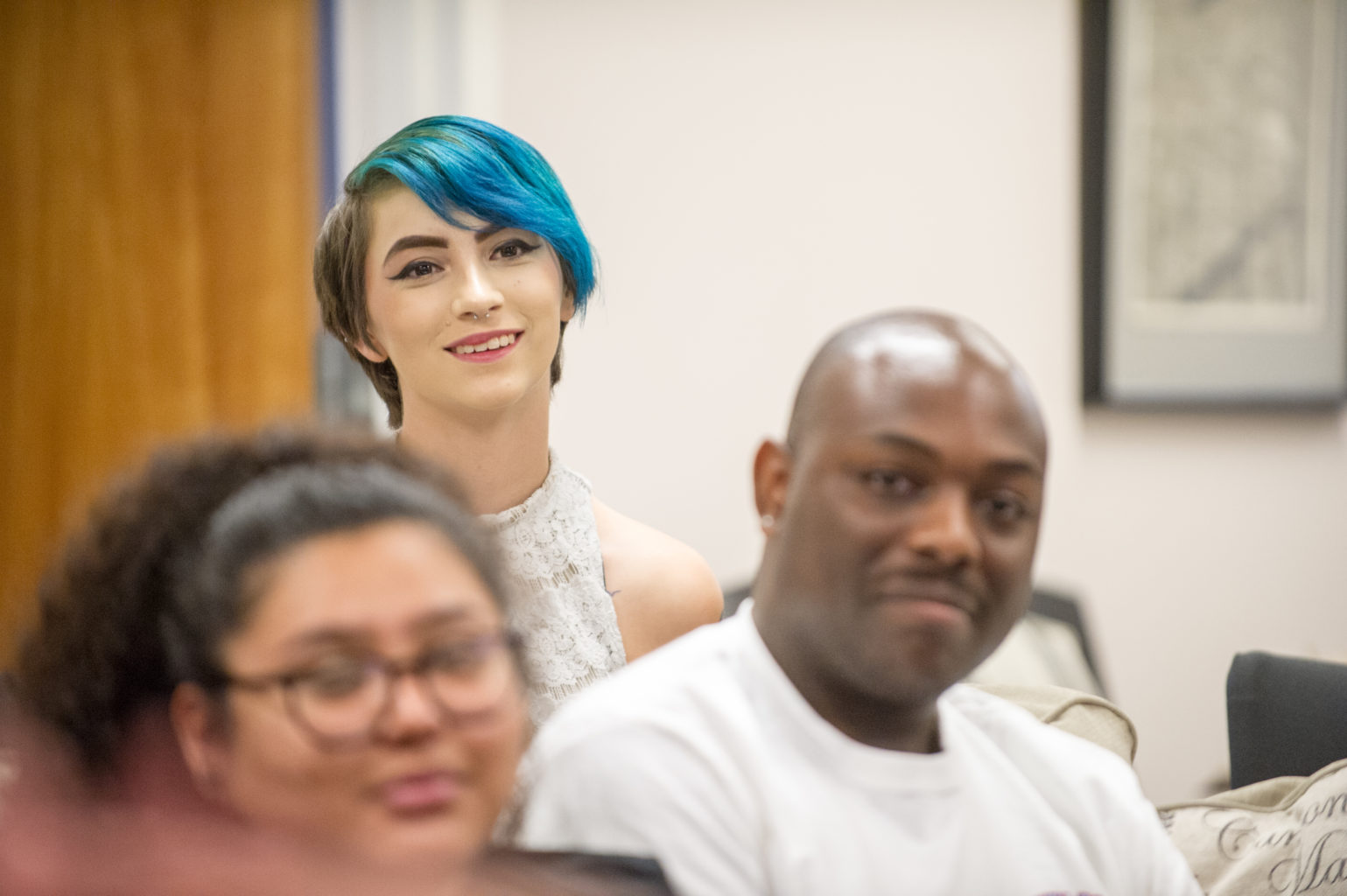
Course Delivery
Our part-time program blends academic and experiential components to round out your education. Online courses allow for flexibility in your schedule and the ability to work while pursuing your degree.
Please check the schedule of classes for locations and times. Locations and times are subject to change.
Featured Courses
PROGRAM COSTS
Tuition and fees for graduate students taking nine credit hours are $3,669 for Texas residents and $7,341 for non-residents.
Admission
Your Path to Becoming a Lion
Deadlines
Spring admission consideration: October 15
Summer admission consideration: March 1
This program does not have fall admission consideration.
All applicants seeking admission to a doctoral degree program in Counseling must have completed coursework from a master's degree program accredited by CACREP(Council for Accreditation of Counseling and Related Educational Programs).
- Select “Create a new graduate school admissions application.”
- Select “Texas A&M University-Commerce (Commerce)” as your “Target University.”
- Select “Counselor Education and Supervision, PHD” as your “Major.”
Domestic Application Fee 395064
- Pay the $50 application fee.
Wait to receive an application confirmation email before proceeding to the next step.
- After you submit your application, the Graduate School will send a confirmation email within two business days to the personal email account you used for ApplyTexas.
Submit the following documents after you receive an application confirmation email.
- Upload your documents at myLeo > Apps > Check Admissions Application Status & Test Scores or email your documents to your graduate coordinator unless otherwise specified below.
Graduate Coordinator Dayla Burgin
Your Graduate Coordinator
Contact your previous institution(s) and request that they send your official transcripts to your graduate coordinator
- We recommend that you request transcripts for all of your academic work.
You must hold one of the following GPA requirements to be considered for doctoral admission:
- An awarded bachelor's degree from a regionally accredited university with at least a 3.00 GPA on the last 60 hours or an awarded bachelor's degree from a regionally accredited university with at least a 2.75 GPA or higher or
- An awarded master's degree from a regionally accredited university with at least a 3.4 GPA or higher in the field of counseling or closely related field.
If you are unable to submit a digital copy, hard copies may be mailed to:
Texas A&M University-Commerce
Attn: Graduate School
2600 S. Neal St.
Commerce Texas 75428
We will need official/original documents. If those documents are the only copies you have, the Graduate School can mail them back to you upon request. Contact your graduate coordinator for more information.
All international transcripts must be evaluated and the evaluation submitted to the Graduate School.
We accept evaluations sent directly from the following Agencies.
- If a normal evaluation is submitted, official original transcripts with all marksheets will still need to be submitted.
- If a WES ICAP or equivalent is submitted, we will not need the official transcripts to be submitted separately.
Submit the Statement of Goals Form found in the Application Packet. An additional page can be added.
Submit a resume or curriculum vitae (CV) which includes your academic and professional history and achievements.
Submit a one-page essay which closely addresses the following topic:
- Describe your personal philosophy of the principles which guide therapeutic change. Identify aspects of this philosophy that derive from counseling theorists and those which are your own.
Request three signed letters of recommendation, on letterhead, from professionals who can attest to your goals and ability to succeed in the program.
- At least one of the references should hold a doctoral degree.
Those individuals should
- Email the letter to your graduate coordinator or
- Send the letter to you. Then, you will utilize the upload system: myLeo > Apps > Check Admissions Application Status & Test Scores
If you are unable to submit a digital copy, hard copies may be mailed to:
Texas A&M University-Commerce
Attn: Graduate School
2600 S. Neal St.
Commerce Texas 75428
Submit official General Test GRE scores
- Request that your GRE®scores be sent to Texas A&M University-Commerce (6188) when you register for the test. If you have already taken the GRE®, you can order additional score reports.
Look for application updates in myLeo > Apps > Check Application Status
- Once an admission decision has been made, you will receive an email to your student email account at myLeo > Apps > Leomail.
- Apply for scholarships and graduate assistantships once you are admitted.
- Apply for financial aid by submitting a FAFSA and sending it to school code 003565.
- Contact your financial aid advisor with any questions.
Once registration opens and you are eligible to enroll, your graduate enrollment specialist will contact you to complete registration.
- View your degree plan in DegreeWorks.
- To register for classes, go to myLeo > Student Resources > Registration Menu.
Contact your graduate enrollment specialist if you have any questions regarding your degree plan and registration.
Graduate Enrollment Specialist Jennifer Faunce
Your Graduate Enrollment Specialist
Deadlines
Spring admission consideration: October 15
Summer admission consideration: March 1
This program does not have fall admission consideration.
All applicants seeking admission to a doctoral degree program in Counseling must have completed coursework from a master's degree program accredited by CACREP(Council for Accreditation of Counseling and Related Educational Programs).
- Select “Create a new graduate school admissions application.”
- Select “Texas A&M University-Commerce (Commerce)” as your “Target University.”
- Select “Counselor Education and Supervision, PHD” as your “Major.”
International Application Fee
- Pay the $75 application fee
Wait to receive an application confirmation email before proceeding to the next step.
- After you submit your application, the Graduate School will send a confirmation email within two business days to the personal email account you used for ApplyTexas.
Submit the following documents after you receive an application confirmation email.
- Upload your documents at myLeo > Apps > Check Admissions Application Status & Test Scores or email your documents to your graduate coordinator unless otherwise specified below.
Graduate Coordinator Dayla Burgin
Your Graduate Coordinator
Contact your previous institution(s) and request that they send your official transcripts to your graduate coordinator.
- We recommend that you request transcripts for all of your academic work.
All international transcripts must be evaluated and the evaluation submitted to the Graduate School.
We accepts evaluations sent directly from the following Agencies.
- If a normal evaluation is submitted, official original transcripts with all marksheets will still need to be submitted.
- If a WES ICAP or equivalent is submitted, we will not need the official transcripts to be submitted separately.
You must hold one of the following GPA requirements to be considered for doctoral admission:
- An awarded bachelor's degree from a regionally accredited university with at least a 3.00 GPA on the last 60 hours or an awarded bachelor's degree from a regionally accredited university with at least a 2.75 GPA or higher or
- An awarded master's degree from a regionally accredited university with at least a 3.4 GPA or higher in the field of counseling or closely related field.
If your institution is unable to submit a digital copy, hard copies may be mailed to:
Texas A&M University-Commerce
Attn: Graduate School
PO Box 3011
Commerce, Texas 75429-3011
We will need official/original documents. If those documents are the only copies you have, the Graduate School can mail them back to you upon request. Contact your graduate coordinator for more information.
Submit the Statement of Goals Form
- You can find the form in the Application Packet.
- An additional page can be added.
Submit a resume or curriculum vitae (CV) which includes your academic and professional history and achievements.
Submit a one-page essay which closely addresses the following:
- Describe your personal philosophy of the principles which guide therapeutic change. Identify aspects of this philosophy that derive from counseling theorists and those which are your own.
Request three signed letters of recommendation, on letterhead, from professionals who can attest to your goals and ability to succeed in the program.
- Two of the references should hold a doctoral degree.
Those individuals should
- email the letter to your graduate coordinator or
- send the letter to you. Then, you will utilize the upload system: myLeo > Apps > Check Admissions Application Status & Test Scores
Submit official General Test GRE scores
- Request that your GRE®scores be sent to Texas A&M University-Commerce (6188) when you register for the test. If you have already taken the GRE®, you can order additional score reports.
Submit these documents to the Office of International Programs once you have been admitted
- Official sponsor statement
- Bank statement from the sponsor with a balance of at least $26,025 which is less than 1 year old
See the Office of International Program's “Confirmation of Financial Resource” for more details.
You do not need to submit test scores if you have completed (all years) of a bachelor’s or higher degree from a regionally accredited university in the United States.
Request that your scores from one of the following be sent to Texas A&M University-Commerce:
- TOEFL (Minimum Scores: IBT 79, or CBT 213, or PBT 550)
- IELTS (Minimum Score: 6.00 band overall)
- PTE (Minimum Score: 53 overall or higher)
- Duo Lingo (Minimum Score: 105)
*Scores must be less than two years old
Look for application updates in myLeo > Apps > Check Application Status
- Once an admission decision has been made, you will receive an email to your student email account at myLeo > Apps > Leomail.
- Apply for scholarships and graduate assistantships once you are admitted.
- Apply for financial aid by submitting a FAFSA and sending it to school code 003565.
- Contact your financial aid advisor with any questions.
Once registration opens and you are eligible to enroll, your graduate enrollment specialist is here to help you complete registration.
- View your degree plan in DegreeWorks.
- View the Schedule of Classes.
- To register for classes, go to myLeo > Student Resources > Registration Menu.
Contact your graduate enrollment specialist if you have any questions regarding your degree plan and registration.
Graduate Enrollment Specialist Jennifer Faunce
Your Graduate Enrollment Specialist
We are here to help!
Frequently Asked Questions
Can I take any or all of my classes online?
Our core counseling courses are not offered online, however, several elective courses are available in online or hybrid delivery formats.
What credentials can I get with the doctorate in counseling?
Every state has different laws governing professional counselor licensure. You should consult with the licensing board of the state in which you plan to practice for specific information.
Generally, those states that have licensing laws for professional counselors require a 48-60 semester hour degree (generally a master’s degree) and post-degree supervision hours to be eligible to practice counseling (licensed professional counseling or licensed marriage and family therapist). Many doctoral students have earned their masters degree and use the doctoral program to advance their skills in specific areas such as play therapy, child and adolescent counseling, couples and family counseling, and/or supervision. You can work with your advisor to tailor your electives to meet your license and practice needs.
What kinds of graduate assistantships are available?
Graduate Assistant Teaching (GAT)
The Counseling Program has an undergraduate minor in counseling, and many of our doctoral students have the opportunity to teach at this level. These meetings provide an opportunity for support, supervision, and mentoring as the GATs develop the courses, interact with undergraduate students, and handle the responsibilities of teaching.
Graduate Assistant Non-teaching (GANT)
The department also has non-teaching graduate assistantships available for qualified students. Generally the GANT works with a faculty member in the supervision of master’s level students as they develop counseling skills. Depending on funding, university entities other than the Counseling Program (such as the university counseling center and academic advising) have graduate assistantships available.
Graduate Assistant Research (GAR)
Funded research projects allow for GAR’s to work with faculty members, which can lead to a manuscript submission or a presentation proposal.
Will there be opportunities to present at state or national conferences?
The faculty encourages our doctoral students to join them in professional presentations at local, regional, and national conferences. The faculty will also advise doctoral students, helping them to prepare proposals and presentations at local, regional, and national conferences.
Is there a way to speak with other doctoral students in the department or university?
The university has a Doctoral Student Association that is actively working to support doctoral students. Current doctoral students in our department would be happy to speak with you concerning their program and education. You can call the department office at 903.886.5637 for contact information.
What is the residency requirement in the doctoral program?
Doctoral student residency in the A&M Commerce Department of Counseling serves three purposes. First, it is designed to encourage collegial relationships between students and faculty. Second, it introduces students to typical professional expectations they will encounter as they progress through their careers. Finally, activities within the residency enhance student learning by supplementing the academic and experiential components of the program. (Students do not have to live in Commerce during their doctoral residency).
Residency Requirements
- Attend a minimum of six doctoral seminars
- Assist faculty members on two different projects leading to a program proposal or manuscript submission
- Engage in a minimum of two departmental activities, such as assisting with Murphy Day, proctoring master’s comps, etc.
- Actively engage in professional service, such as participating in Chi Sigma Iota or the Doctoral Student Association, or serving on a departmental or college committee.
There is no specified time limit for completing residency.
Are there doctoral seminars or other departmental educational opportunities beyond the classroom?
The department hosts a series of doctoral seminars each semester. These are presented by faculty members and other qualified individuals (sometimes doctoral students). Examples of past topics include: ethics in supervision, play therapy, preparing your proposal/article for submission, conversations with the ACA President-Elect, preparing for doctoral comps, involvement in professional associations, and multicultural issues in the classroom.
What opportunities are available to work toward publications?
Faculty members in the department welcome students to join them in publication efforts. Mentoring relationships are developed between faculty and doctoral students as the students prepare their own manuscripts for submission and publication as well.
Do students and faculty collaborate on professional activities?
The faculty of the Counseling Program has a long tradition of leadership in state, regional, and national professional associations. Faculty members are also involved in ongoing research, publication, and presentation activities. Our doctoral students benefit from involvement and collaboration with faculty members in these endeavors.
Contact Us
- Department of Counseling
- 903.886.5637
- 903.886.5594
- P.O.Box 3011
- Commerce, TX 75429-3011



 Careers
Careers